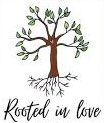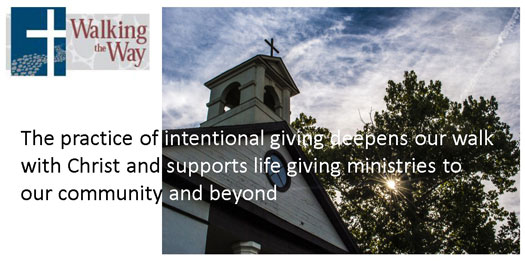
Grace and peace.
This is the month when we consider how we’ll support St Peter’s financially in the coming year. We have an opportunity to consider what being part of a church means, and where we are in our commitments not just to God, but to this body of Christ of which we are a part. Are we a church rooted in love? And if so, how do we continue to grow into God’s love for our own good and for the good of the world around us?
To be a church rooted in love is to be a church that does two things well. The first thing is to be a church that opens its doors to any person who comes. This person may simply be curious. Perhaps this person may desire community with others, and/or desire a deeper knowledge of God. These desires may surface only after the person walks through the open door and finds a loving, accepting community within those walls, a community of people who model the meaning of loving God and one another.
The second thing that a church that is rooted in love must do well is to grow strong, faithful disciples, those who will follow Jesus, no matter the cost, and will support one another in their life in Christ. We do this together through worshiping, praying, studying, giving in support of the church, sharing fellowship with one another, and reaching out into the world to share God’s love. These strong faithful disciples are the ones who throw open the doors and welcome others in, hoping that they too will decide to join fully and to become disciples themselves. These disciples are the ones who worship, pray, study, give, share together in one another’s joys and sorrows, hoping to deepen their relationships with God. These are the ones who reach out into the world on God’s behalf.
Our ongoing challenge as disciples is to grow stronger and ever more deeply in our love for God and in our desire to follow Jesus, more giving, and more compassionate toward one another and toward those who may never walk through our doors, but who are desperately in need of God’s love—our ongoing challenge is to be more complete and more loving in our welcome.
For those of us who are on the fence, and that’s all of us at some point or another, torn by so many things that keep us away from God and halfhearted toward one another: Jesus asks us to decide to move beyond seeking, or being halfway committed, and to commit to becoming a whole hearted disciple, one with a new heart and a new spirit of love, ready to follow wherever Jesus calls us to go as this community of faith. And Jesus calls us to be patient with one another in our varying levels of commitment, to have compassion for one another, to encourage one another, and to help one another to be rooted in love as we grow together, and welcome the stranger in.
Catherine+


 to open in a new window
to open in a new window

